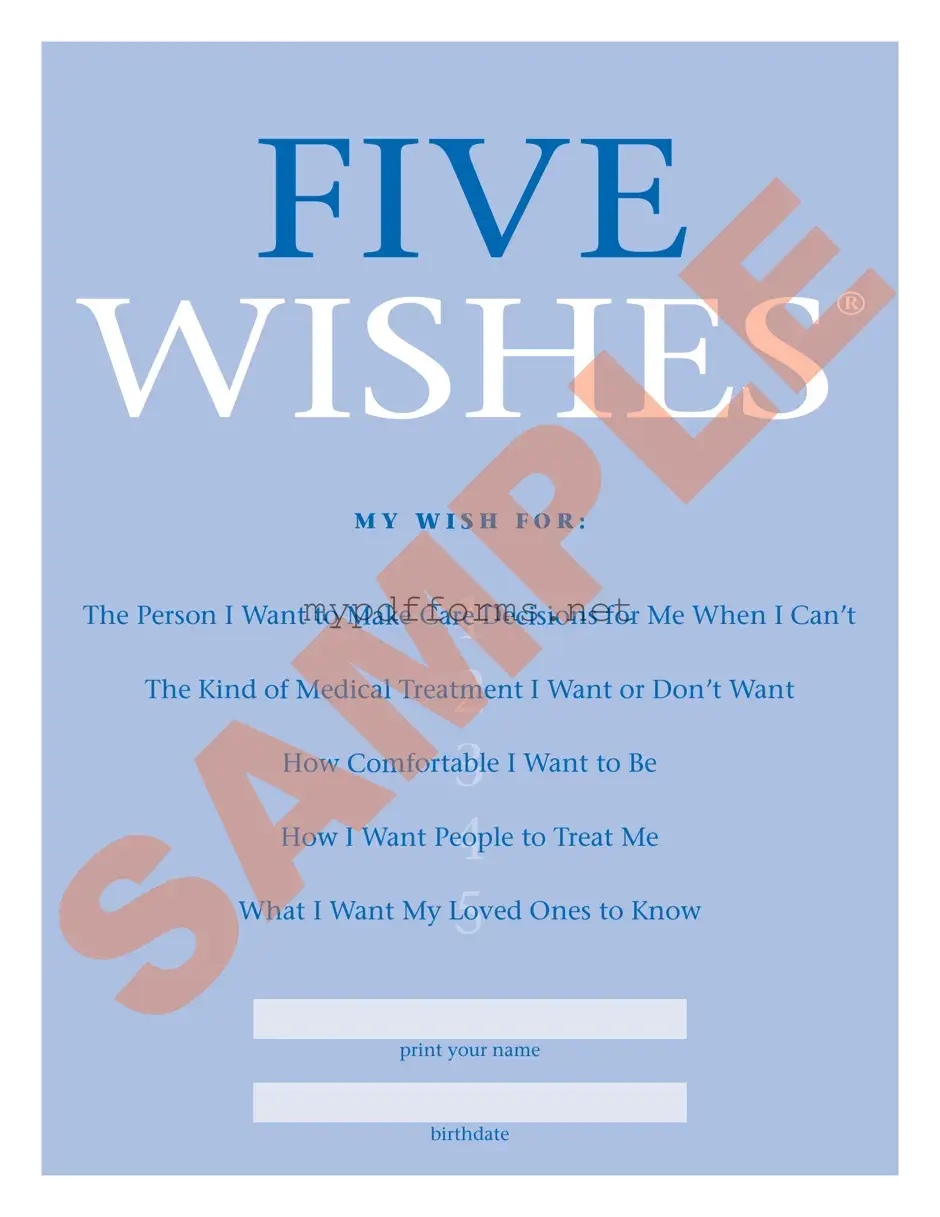The Five Wishes document shares similarities with a traditional living will. Both documents allow individuals to express their medical treatment preferences in the event that they become unable to communicate these wishes themselves. While a living will typically focuses solely on medical interventions, the Five Wishes document expands this concept by addressing emotional and spiritual needs, as well as preferences for comfort and personal interactions. This holistic approach helps ensure that not only medical decisions are respected, but also the individual’s overall quality of life is prioritized during serious health crises.
Another document that resembles Five Wishes is the durable power of attorney for health care. This legal document designates a specific person to make health care decisions on behalf of an individual when they are incapacitated. Like Five Wishes, it allows individuals to choose someone they trust to advocate for their medical preferences. However, while the durable power of attorney primarily focuses on decision-making authority, Five Wishes provides a broader framework by detailing the individual's values, preferences, and treatment choices, making it easier for the appointed agent to act in alignment with those wishes.
The advance directive is also akin to the Five Wishes document. Both serve as legal instructions regarding medical treatment preferences and appoint individuals to make health care decisions if the person becomes unable to do so. The key difference lies in the level of detail provided. Five Wishes offers a more comprehensive narrative that includes emotional and spiritual considerations, whereas an advance directive may be more straightforward and limited to medical procedures. This additional context can be invaluable for family members and health care providers who must navigate complex decisions during difficult times.
When engaging in vehicle transactions, it's essential to utilize a valid document such as the Maryland Motor Vehicle Bill of Sale for verification. This form acts as a safeguard, ensuring that both parties can proceed with confidence. You can access the form through this vital Motor Vehicle Bill of Sale resource to ensure all particulars are attended to appropriately.
Health care proxies are another document similar to Five Wishes. A health care proxy specifically appoints an individual to make medical decisions on behalf of someone who is unable to do so. While both documents allow for the appointment of a trusted individual, Five Wishes goes further by including specific preferences for care, comfort, and treatment, as well as guidance on how to handle various medical situations. This added layer of detail can help the appointed proxy make decisions that truly reflect the individual’s values and desires.
Lastly, the Do Not Resuscitate (DNR) order shares some similarities with the Five Wishes document. A DNR order specifically instructs medical personnel not to perform CPR or other resuscitative measures in the event of cardiac arrest. While Five Wishes encompasses a broader range of health care preferences, including end-of-life care, both documents serve to communicate an individual’s wishes regarding medical interventions. By including a DNR within the Five Wishes framework, individuals can ensure that their specific desires regarding resuscitation are clearly understood and honored in conjunction with their overall health care plan.

